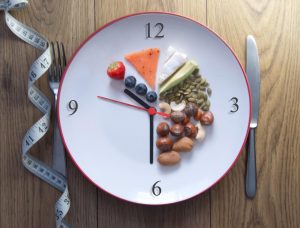Masculinity is fragile.
While it’s only been fairly recently that this fact has been discussed in mainstream discourse, not only does it resonate with many women’s experiences with men, it lends itself to the Internet’s easy, conjugational humor. #MasculinitySoFragile might be attached to anything from pictures of the Republican candidates to a candle scented “Man Town.” But if you want a more literary exploration of this phenomenon, look no further than Han Kang’s The Vegetarian. Kang goes way past the memes and into the fragility of hegemonic society in general — that is, the lives, families, and even art that is the scaffolding for said masculinity.
The Vegetarian begins with a refusal: Yeong-hye, the young wife of the narrator in the first section, suddenly refuses to eat meat. Her only explanation is that she had a dream, which we get to see in italics:
A long bamboo stick strung with great blood-red gashes of meat, blood still dripping down. Try to push past but the meat, there’s no end to the meat, and no exit.
Yeong-hye doesn’t become a vegetarian out of sympathy for any particular creature, but out of disgust for meat as a symbolic, phantasmagoric substance. From the reactions of the men around her, it quickly becomes clear that her dream has hit upon an unexpected locus of fragility. Her father tries to force meat into her mouth; her husband leaves her; her brother-in-law becomes sexually obsessed with her.
 The men in The Vegetarian are fragile and across-the-board despicable. Yeong-hye’s father is physically abusive, the patriarch of a family traumatized at his hand. Her husband, the first narrator, is bland, entitled, and completely devoid of empathy; a textbook case of mediocrity. Her brother-in-law is a more complex case, but perhaps the worst of all: an artist who only cares about his own vision (that is, himself). Yeong-hye’s slow decline, starting when she cuts herself with a fruit knife in response to her father’s violence and ending in her complete refusal to eat, happens at each step as a reaction to one of these men’s violence. Ironically, the men all think they are merely reacting to her.
The men in The Vegetarian are fragile and across-the-board despicable. Yeong-hye’s father is physically abusive, the patriarch of a family traumatized at his hand. Her husband, the first narrator, is bland, entitled, and completely devoid of empathy; a textbook case of mediocrity. Her brother-in-law is a more complex case, but perhaps the worst of all: an artist who only cares about his own vision (that is, himself). Yeong-hye’s slow decline, starting when she cuts herself with a fruit knife in response to her father’s violence and ending in her complete refusal to eat, happens at each step as a reaction to one of these men’s violence. Ironically, the men all think they are merely reacting to her.
While certain elements of Kang’s story could lend The Vegetarian to being considered, paradoxically, both an old-school female hysteria narrative and an ultra-contemporary treatment of the social underpinnings of mental illness, it’s ultimately neither. Kang’s skillful writing leads us to our conclusions as if in a dream, just as Yeong-hye came to hers. The morality of the character’s actions sound stark in my representation, as they are when plainly stated. But in Kang’s world, made evident through the three narrators of Yeong-hye’s husband, brother-in-law, and sister, the truth is peevishly difficult to pin down, just as it is in real-life situations of abuse.
The Vegetarian resolves in the perspective of Yeong-hye’s sister, In-hye. The sisters have been left by their husbands — although it might be more accurate to say they drove the men away. Either way, In-hye is left with the care of her son as well as her institutionalized sister, not to mention her own newfound doubts about her life:
She’d been unable to forgive her [sister] for soaring alone over a boundary she herself could never bring herself to cross, unable to forgive that magnificent irresponsibility that had enabled Yeong-hye to shuck off social constraints and leave her behind, still a prisoner. And before Yeong-hye had broken those bars, she’d never even known they were there.
In-hye’s character reveals that, if masculinity is fragile, femininity is as strong as iron bars. She allows Kang to explore how, even when women are able “shuck off social constraints,” it’s still usually other women who are left to pick up the pieces. For In-hye, this means footing hospital bills, caring for her son, visiting her sister and trying to provide the emotional support she needs to heal. Kang wants us to grapple with this difficult question: what does it mean when one woman’s personal revolution is the doubling of another woman’s reproductive labor?
The Vegetarian offers no answers — instead, it colors modern life with an appropriate coat of unease and horror. The horrors of abuse, heteronormativity, marital rape, unscrupulous men, food, motherhood; the horror of being a woman. In-hye may ultimately be the avatar of the reader, who, after reading the book, ought to feel more burdened than before. The Vegetarian will make your skin crawl and leave you with the same heavy dread as a horror movie; it may haunt you through your next few meals and family get-togethers. But it’s worth reading, for the same reason horror movies are worth watching: they let you see yourself for what you really are: an animal. A tree. A piece of meat.

















